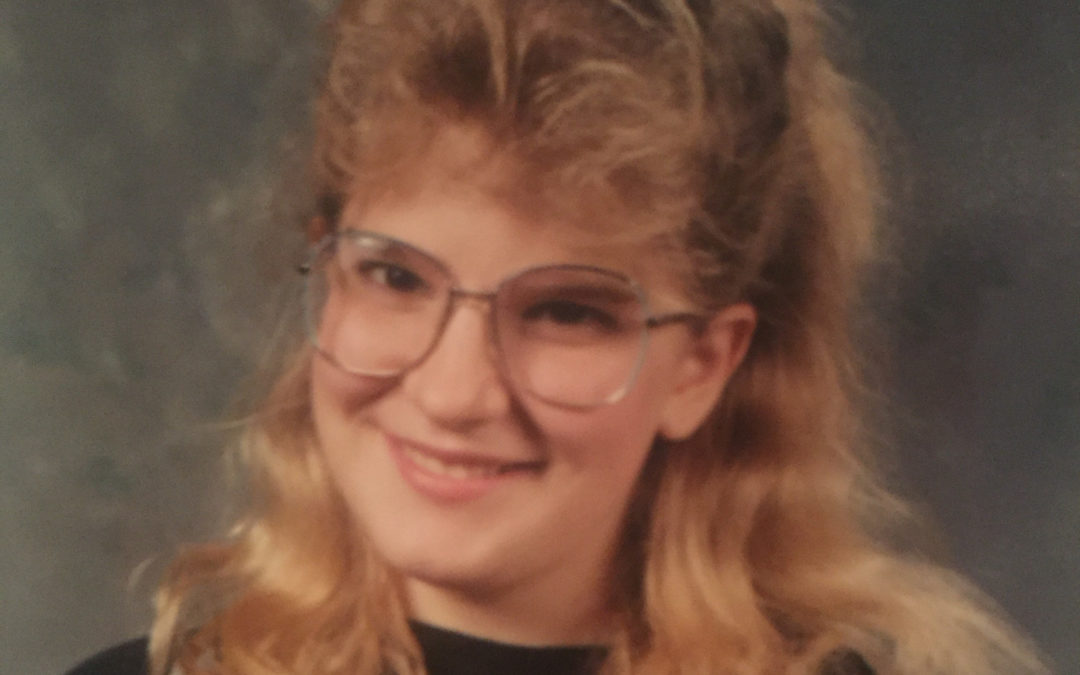It was the mid-1980s. Smoking was normal, and latchkey kids were all the rage. I was in the sixth-grade and the youngest of four siblings with divorced parents. My mom was going to school, working during the day, and partying like a freshman at night.
You can fill in the details of what that meant for my day-to-day existence.
I was that kid.
You know the one because there’s one in every class.
Sixth-graders who are left to their own devices aren’t well known for maintaining personal hygiene and appearance.
I was frequently disheveled, often smelly and many days blissfully unaware.
Days, when I wasn’t so blissfully unaware, were tough. Days when I could hear the other kids whispering on the playground, and I could see them trying not to appear obvious as they stared.
This was my existence for a long time, and it wasn’t much fun.
(By now you’re probably wondering, “Where the heck is she going with this?”)
Let me tell you.
I’ve spent a lot of time thinking about how quick we are to notice when someone needs “help”, and how reluctant we are to say anything to them.
Over and over at work this week I’ve heard:
“Man this guy needs help. Somebody should really tell him.”
“His presentations are awful; he’d be so much more effective if…”
or “She should really do something about…” XYZ.
I heard “Alex, so and so really needs your help, but I can’t be the one to tell them because_______________.”
But what really bothered me this week were the times I stumbled with my responses to these statements, or I didn’t push further. In one case that I’m not particularly proud of, I didn’t say much at all.
I held back, and I knew it was wrong, but I couldn’t quite put my finger on why. I mean, should we, do we, have to say something?
Yes, we do.
I remembered what it felt like, back in the day, for everyone in the room to see I needed help. To know they were talking about me amongst themselves and then, worst of all, not tell me. No one came to me to say, “Hey kid, here’s what you need to do.” Not a friend… another student… or a teacher.
And that hurt.
I thought back to what sixth-grade Alex would’ve wanted. And what I want for myself and others now is this:
If you see someone needs “help”, Go.Tell.Them.
If you genuinely care about the person who you think needs help, have the hard, sticky, awkward conversation. Don’t leave it to someone else. Don’t complain to others about how the person should change or improve. Talk to them. Show the person that you care enough to address whatever the issue is to their face.
Tell them your concerns and then… this is key… offer to help in any way you can. (I promise, you might think you can’t help but try harder.)
Maybe they’ll take your advice or maybe they won’t, but you will be able to walk away knowing you did your best to help someone else be their best.
There’s an exception to this, of course. If you are talking about someone you’ve watched on the periphery who you don’t really know, and that you’re judging for the sake of judging. It’s easy to watch someone on stage, in a meeting or in a conversation and judge them (I’ve been there, and I’ve done that). If you catch yourself doing this… take a step back and think about what it might be like to be in their shoes. Not everyone shares the same gifts, talents and or desires. Assume that people are doing their best.
As for what happened to sixth grade Alex, well you’ll be glad to hear that I did eventually learn to shower (not that I do it all the time) wear deodorant (most of the time) and do laundry (it’s my favorite chore for obvious reasons).
And I’m surrounded by people who I trust to tell me the tough things I need to hear when I need to hear them.
Now go, have the sticky, awkward conversation you’ve been avoiding…
Have you experienced a time when it seemed like everyone else knew you needed help but didn’t tell you? Have you had the tough conversation with someone who needed your help? Share in the comments below!

